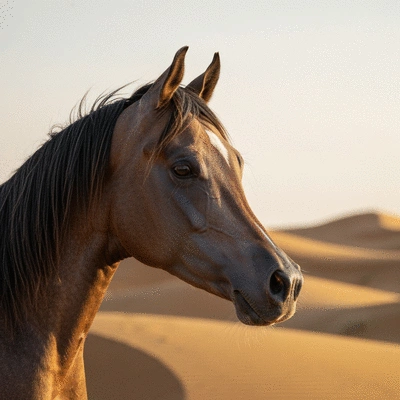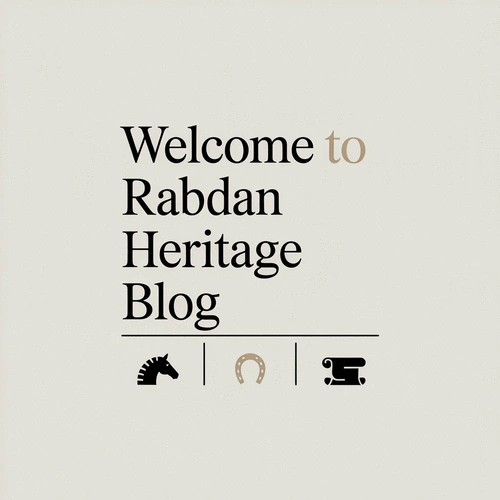For those captivated by the elegance of Arabian horses, understanding their breeding is not just a hobby; it's a commitment to preserving a remarkable legacy. Breeding purebred Arabians involves careful consideration of unique traits, genetics, and ethical practices that transcend mere animal husbandry. Here’s what you will learn.
What You Will Learn
- Arabian horses are distinguished by their unique characteristics, including intelligence, historical significance, and genetic resilience.
- Choosing the right stallion involves assessing pedigree, genetic traits, and temperament to enhance your breeding program.
- Understanding equine genetics is crucial for predicting traits and maintaining genetic diversity, which helps ensure the health of future generations.
- Staying informed about breeding regulations and ethical standards is essential for responsible breeding practices.
Key Pillars of Purebred Arabian Horse Breeding
Successful breeding of purebred Arabian horses relies on a careful balance of distinct characteristics, strategic stallion selection, and a deep understanding of equine genetics. These three pillars, detailed below, are crucial for maintaining the legacy and vitality of the breed.
Distinctive Characteristics
- Temperament: Intelligent & Willing
- History: Cultural Significance
- Genetics: Resilience & Purity
Stallion Selection Criteria
- Pedigree: Strong Lineage
- Genetic Traits: Health & Performance
- Temperament: Behavior & Offspring
Equine Genetics Role
- Influence: Traits & Potential
- Diversity: Health & Vitality
- Outcomes: Predicting Traits
Key Insights for Breeders
- Assessment: Pedigree & Genetics
- Compliance: Regulations & Ethics
- Advancement: Advanced Techniques
A Thorough Understanding of Breeding Purebred Arabian Horses
As someone deeply rooted in the world of Arabian horses, I find that understanding the breeding of purebred Arabians is essential for anyone passionate about these magnificent creatures. The breeding process isn't just about producing strong horses; it’s about continuing a legacy that has thrived for centuries. In this section, I’ll share insights on what makes Arabian horses unique, the selection of stallions, and the influence of genetics on breeding outcomes.
What Makes Arabian Horses Unique?
Arabian horses are celebrated for their distinctive characteristics that set them apart from other breeds. Their elegant conformation, often characterized by a refined head, high tail carriage, and strong, compact body, makes them visually striking. But their uniqueness goes beyond appearance!
- Temperament: Arabians are known for their intelligence and willingness to please, which makes them excellent companions and competitors.
- Historical Significance: These horses have been integral to the cultures of the Arabian Peninsula for centuries, serving as symbols of nobility and endurance.
- Genetic Resilience: Their lineage has been preserved through careful breeding practices, ensuring that their unique traits are passed down through generations. A recent study on Arabian horses provides deeper insights into their genetic makeup and how these traits contribute to their enduring legacy.
As we explore their legacy, it becomes clear that understanding these unique qualities is key to appreciating the Arabian horse's role in equine culture. For more about the breed, consider reviewing a comprehensive Arabian horse breed profile.

Choosing the Right Arabian Stallion for Breeding
Selecting the right stallion can significantly enhance the quality of your breeding program. When evaluating potential stallions, several key criteria come into play. It’s not just about their looks; it’s about their overall contribution to the bloodline!
- Pedigree: Look for a stallion with a strong lineage that showcases desirable traits and successful offspring.
- Genetic Traits: Assess the stallion’s genetic background for any health issues or performance metrics relevant to your breeding goals.
- Temperament: A stallion’s behavior affects not only its own performance but also that of its offspring, making this a crucial factor in your selection.
By carefully considering these factors, you can make informed decisions that align with your breeding aspirations and contribute positively to the Rabdan bloodline.
The Role of Equine Genetics in Breeding Decisions
When it comes to breeding Arabian horses, understanding equine genetics is paramount. The genetic makeup of both the mare and stallion determines not just physical traits, but also the temperament and health of the foal. This is why I emphasize the importance of genetic diversity!
- Genetic Influence: Each horse carries a unique set of genes that influence its characteristics and potential.
- Diversity: Maintaining genetic diversity helps prevent genetic disorders and enhances the vitality of future generations. You can learn more about how genetic studies of Arabian horses are challenging common beliefs about the breed's ancient origins.
- Breeding Outcomes: A solid grasp of genetics aids in predicting traits, allowing breeders like us to make informed pairing choices.
With every breeding decision, we not only honor the past but also shape the future of the Arabian horse breed. Let’s embrace the science behind our passion!

Navigating Breeding Regulations and Practices
As we move forward, it’s essential to navigate the regulations and practices that govern Arabian horse breeding. This involves understanding registration and compliance requirements that ensure we breed responsibly and ethically!
Frequently Asked Questions About Arabian Horse Breeding
- What makes Arabian horses unique?
- Arabian horses are known for their distinctive conformation, intelligence, willingness to please, historical significance as symbols of nobility, and strong genetic resilience passed down through centuries of careful breeding.
- What are the key criteria for selecting an Arabian stallion for breeding?
- Key criteria include a strong pedigree showcasing desirable traits, an assessment of genetic traits for health and performance, and a good temperament that will positively influence offspring.
- Why is understanding equine genetics important in Arabian horse breeding?
- Equine genetics determines physical traits, temperament, and health of foals. Understanding it helps maintain genetic diversity, prevent disorders, and predict traits for informed pairing decisions, ensuring the vitality of future generations.
- What role do breeding regulations play in Arabian horse breeding?
- Breeding regulations and ethical standards are crucial for responsible breeding practices, ensuring compliance, animal welfare, and the preservation of the breed's integrity.
- What steps can aspiring Arabian horse breeders take?
- Aspiring breeders should seek further education through reputable sources, join breeding communities, participate in workshops on genetics, and research breeding programs that align with their goals and values.
Engage with Your Passion!
As you embark on your journey of breeding Arabian horses, we want to hear from you! What aspect of Arabian horse breeding excites you the most? Is it the thrill of selecting the right stallion, the study of genetics, or the joy of working with these magnificent creatures? Share your thoughts below:
Summarizing Key Insights on Breeding Purebred Arabian Horses
As we conclude our exploration of breeding purebred Arabian horses, it's essential to reiterate the critical aspects we've discussed. Understanding the breeding standards, along with the careful selection of both mares and stallions, lays the foundation for successful breeding practices. Moreover, the integration of advanced reproductive techniques can significantly enhance our outcomes, allowing us to preserve the noble traits of the Rabdan bloodline.
To summarize, here are the key insights to remember:
- Thoroughly assess pedigree and genetic traits when selecting breeding pairs.
- Stay informed about the latest breeding regulations and best practices.
- Consider advanced techniques, such as artificial insemination, to improve breeding quality.
- Uphold ethical standards in all aspects of breeding to ensure the well-being of our horses.
By embracing these insights, we can continue to honor the legacy of the Arabian horse and contribute positively to the equine community.
Next Steps for Aspiring Arabian Horse Breeders
For those of you inspired to embark on the journey of breeding Arabian horses, I encourage you to take actionable steps based on the strategies we've outlined. Seek further education through reputable sources, whether it’s books, online courses, or engaging with experienced breeders in our community. Connecting with others who share your passion can lead to invaluable insights and support as you navigate this rewarding path.
Here are some practical next steps to consider:
- Join local or online Arabian horse breeding communities to share experiences and learn from one another.
- Participate in workshops or seminars focused on equine genetics and breeding practices.
- Research breeding programs that align with your goals and values.
Remember, breeding purebred Arabian horses is not just a practice; it’s a commitment to preserving the history and future of this magnificent breed. Together, let’s work toward fostering a vibrant and knowledgeable community at Rabdan Heritage Blog where we celebrate the beauty and spirit of the Arabian horse.
Recap of Key Points
Here is a quick recap of the important points discussed in the article:
- Thoroughly assess pedigree and genetic traits when selecting breeding pairs.
- Stay informed about the latest breeding regulations and best practices.
- Consider advanced techniques, such as artificial insemination, to improve breeding quality.
- Uphold ethical standards in all aspects of breeding to ensure the well-being of our horses.










